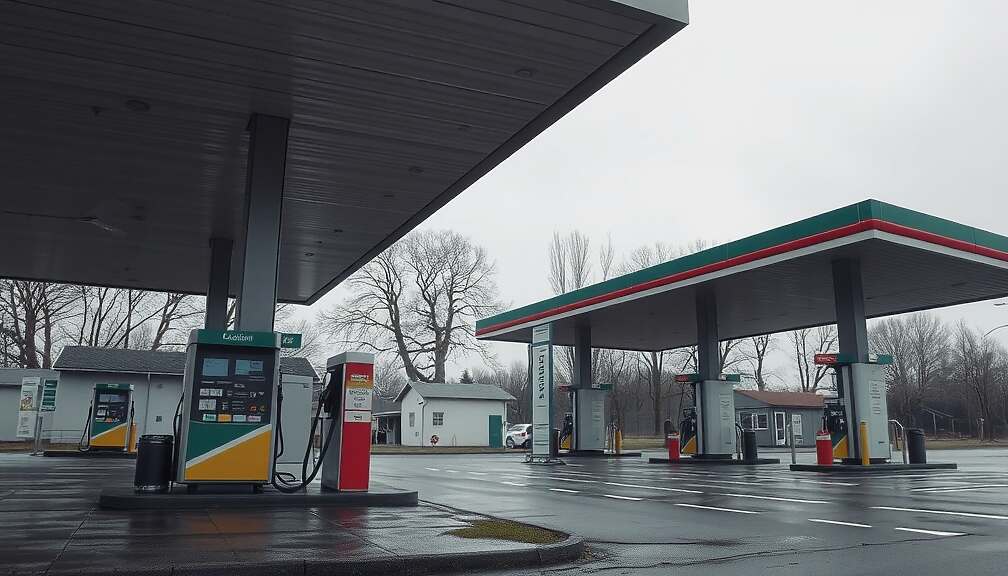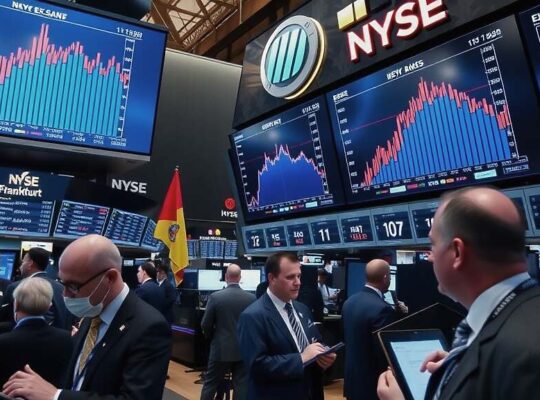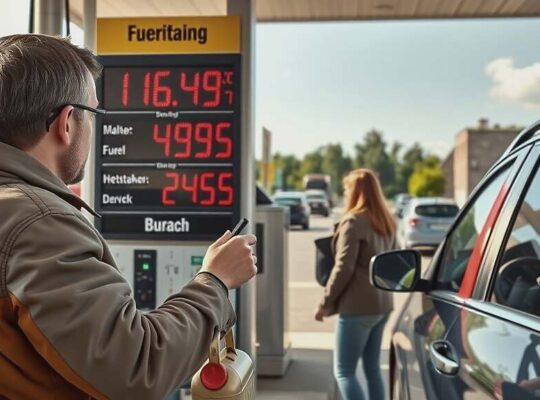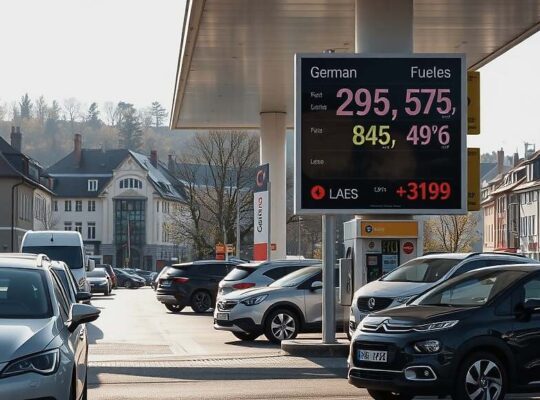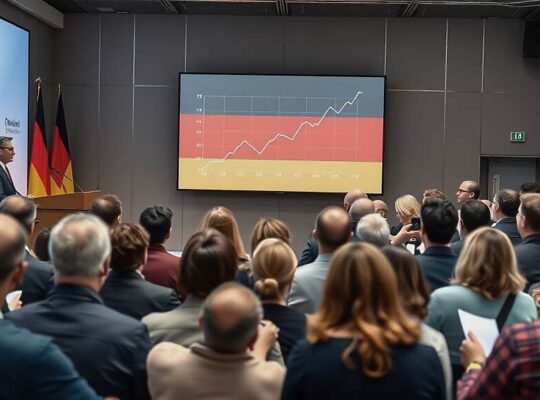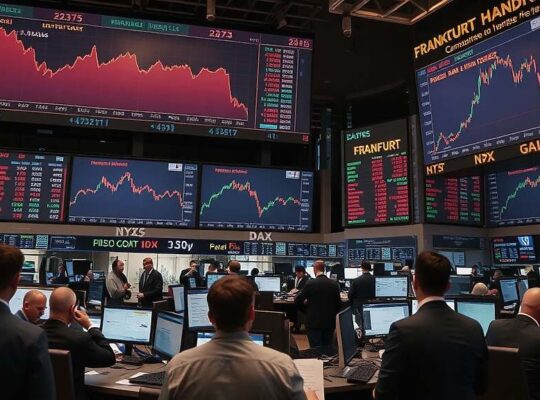Fuel Price Declines Offer Temporary Reprieve Amid Economic Uncertainty
Germany’s motorists are experiencing a welcome, albeit potentially fleeting, decrease in fuel costs, marking the third consecutive week of price drops according to recent ADAC analysis. Super E10 now averages €1.656 per liter nationwide, a decline of 1.5 cents from the previous week, while diesel prices have fallen further, averaging €1.565 per liter – a drop of 1.9 cents.
The immediate cause of this relief is a significant downturn in global crude oil prices. Brent crude, a key global benchmark, currently trades around $61 per barrel, considerably lower than the approximately $70 per barrel seen at the end of September. This reduction provides a degree of respite for German consumers already grappling with rising inflation and concerns over the broader economic outlook.
However, the ADAC, a leading German automotive club, cautions against assuming this trend is sustainable. While the drop in oil prices is the primary driver, the weakening Euro against the US dollar is partially offsetting the impact. This currency fluctuation introduces an element of volatility that could reverse the recent gains.
Furthermore, critical observers note that the temporary decrease in fuel prices doesn’t negate the broader context of energy insecurity and Germany’s ongoing dependence on global markets. The country’s vulnerability to geopolitical instability and supply chain disruptions remains a significant concern, which is exacerbated by the ongoing debate surrounding energy policy and the transition to renewable sources.
The ADAC suggests that further price reductions are possible, but this potential is contingent on continued downward pressure on global oil markets and a stable, or even strengthening, Euro. Ultimately, the affordability of fuel for German citizens will remain a key economic and political issue, heavily influenced by factors beyond national control.


